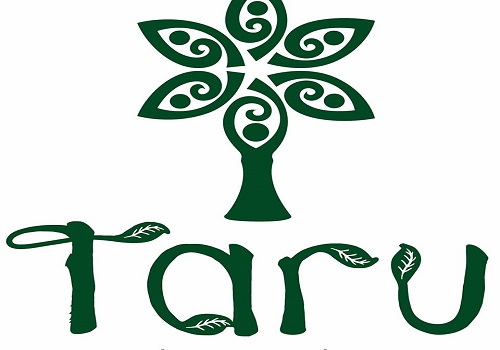“Organic, Artisanal, Superfoods”
When I read the “About Us” section on the TARU Naturals website, I almost didn’t want to ask founder and executive director, Ruchi Jain why she felt the need to start her venture TARU, which establishes and supports sustainable livelihoods for smallholder farmers and tribal communities.
Ruchi holds a Masters degree in Environment Change & Management from Oxford University. She has spearheaded projects for the Ministry of New and Renewable Energy, European Academies Science Advisory Council, and the Indian Youth Climate Network. Over a phone call, I spoke to Ruchi about her venture, her goals, and her ideas about entrepreneurship which thinks beyond products. I realized her experience is just the tip of the iceberg. Meet TARU Naturals and its founder Ruchi Jain.
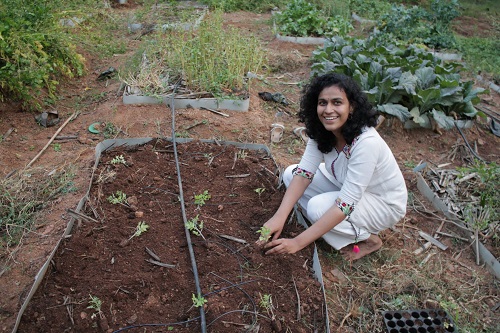
Travelling across Farmlands
“The whole background on environment started at school itself. I remember we had an amazing teacher for environmental sciences, and because of her, I read Small Is Beautiful back then. We also volunteered with rural projects like Kaigal Trust & Navdarshanam. It was not only at school. Even at home, these values were encouraged by my parents. My mother is a Naturopath doctor, and she is very innovative when it comes to food. So we were using all these wonderful and healthy ingredients in delicious ways. I guess my inclination to work for the environment and farmers is a result of being exposed to these elements very young,” says Ruchi as she talks about her interest in environment and agriculture.
Apart from these early experiences, Ruchi credits her extensive travels across rural India in understanding the issues she is now trying to address through her venture. “During my early career as an environmental activist I worked with an initiative, and we had a global climate action day planned in October. For that we literally travelled across the country, meeting organizations, farmers, understanding environmental issues, and the issues in agriculture. Even after my Masters at Oxford, I got a job as a consultant, and I had to work on a scope report on rural energy. Again there was a lot of travel involved working with the Ministry of New and Renewable Energy. All these travel experiences really helped shape my understanding. For example, I remember one of the places I visited in Nandurbar; I witnessed tribal communities who had travelled long distances to sell about 2 or 3 Kgs of huge custard apples for just 40 Rs. Where is the income in that for them? How will that sustain them? When I quit my job in 2014 to begin working on TARU, I again set out to visit farms. I did that till February 2017. Travel has been a vital part of my journey.”
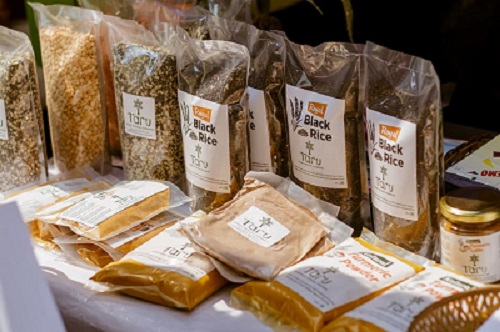
Ruchi says that while farm visits are still important to her, something of equal importance is learning and practising the techniques she is trying to encourage and implement. “I am a certified organic farming teacher. I have been mentored by Agriculture Scientist, Dr Prabhakar Rao from Sri Sri Institute of Agriculture Sciences & Technology, who selflessly equipped me with inter-disciplinary and in-depth know-how on climate resilient agricultural practices. I underwent a rigorous end to end training for four months on natural farming. Simultaneously we piloted an affordable value addition solar dryer for drying vegetables on small scale farms. All this is very important to me because I need to know exactly where the farming communities I work with are coming from and what are their needs. If people question the techniques, I will be able to explain to them why it works, scientifically. The only way I can do that is by spending time at the farms and learning the methodologies myself,” she adds.
“TARU means tree in Sanskrit“, says Ruchi as she talks about the venture which she set up in 2016. “This a network of tribal and farming communities across India supporting each other. It’s a network connecting these communities with the right markets.” Through her venture, Ruchi not only provides markets linkages for 3000 farmers across the country but also helps them with skill development and in finding ways to add value to their existing products. “Every group we work with we help them with organic farming training, certification, structuring their business model, and making their products market ready. We are also coming up with a lot of value addition for our core products. We are currently working with two farming communities in Purandar village, Maharashtra. There are about 250 farmers, and we are helping them with organic certifications and training. Hopefully, we can set up processing units as well in the future.”
On TARU’s website today you will find products like black rice, turmeric, jaggery powder, ghee, millet flours, forest honey, cold pressed coconut oil, among other product options. “The black rice comes from Assam, the jaggery from Belgaum, and we get all our millets from farmers across Maharashtra & Uttarakhand,” says Ruchi talking about the sources of some of these products. “Even if we cannot buy all the products these communities produce, we try and connect them with other market sources.”
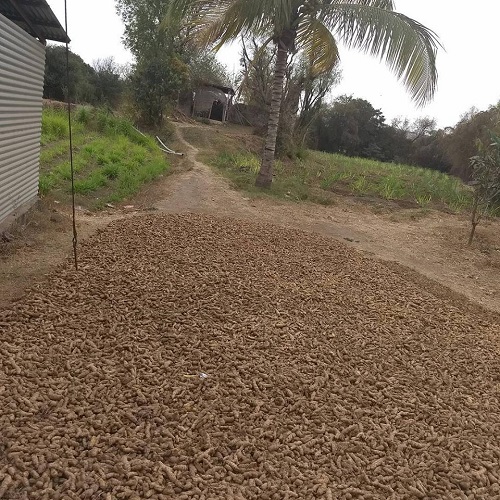
Image Courtesy: TARU Facebook Page
Ruchi says that she is constantly inspired by the people she works with, and that drives her to do more. “Our turmeric farmer Dr Shashikant Salunkhe has been farming organically for more than a decade. He is the recipient of Bharat Krishi Ratna Award for his achievements in agriculture. All of our farmers are very dedicated and devoted to what they are doing, and I get all my inspiration from them. We have been incubated by Unlimited India, an organisation which has given us outstanding support and I am extremely grateful to my family for being the best support in every aspect. TARU wouldn’t stand without my family backing.”
Along with individual consumers, TARU also conducts farmers markets and supplies ingredients to more than 15 restaurants across Mumbai, including Taj Palace, Out of the Blue, Kala Ghoda Cafe, Pantry Cafe, The Quartet and Mocking Bird Cafe. Ruchi shares that they will be launching in retail stores soon.
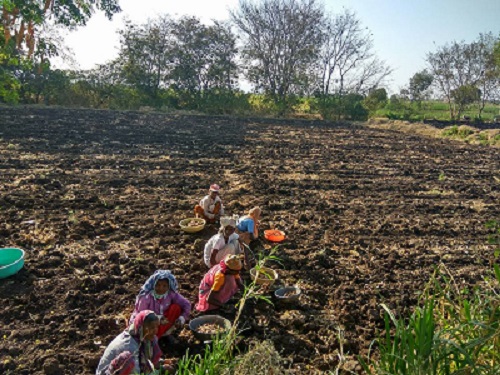
“We are losing our traditional recipes and ingredients. We are loosing out on biodiversity. We are trying to talk to our farmers about all this so that they also understand the problem. We are trying to encourage traditional methods of cultivation, making their own soil manure, saving seeds and crop diversity. But the need of the hour is more entrepreneurs who can connect the dots for the farmers. We need dedicated, passionate and resilient entrepreneurs. We need to innovate in our agricultural sector so that both farmers and consumers get products which are good for them. We need to innovate so that the future generation feels inclined to take up agriculture.”
As we wrap up the conversation, Ruchi tells me that she is setting up a distributor model which will be run by women to create more women entrepreneurs. TARU is also working on getting more chefs to join their mission. But her ultimate vision for the venture, Ruchi shares, is to help as many farmers as possible to convert to organic and traditional farming. “That is my vision for TARU.”
For more information visit https://www.tarunaturals.com/.
You may also like.
